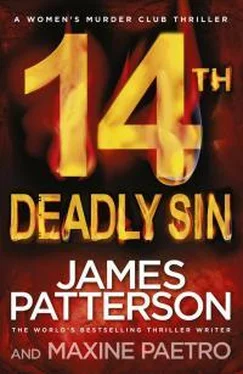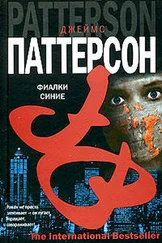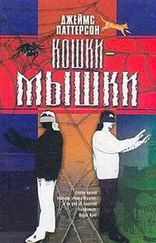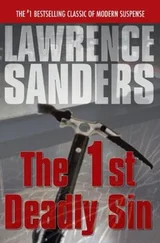If this version of the story was true, and Zac Jordan believed it was, Aaron-Rey had suffered wrongful death and his family deserved justice that could only be delivered in the form of a multimillion-dollar settlement from the SFPD and the City.
Yuki was thinking about the work yet to do when there was a rap on the window. Startled, she turned to see a uniformed officer, making a circle with his index finger, indicating that she should roll down her window.
“Officer?”
“You having car trouble, miss?”
“No, not at all.”
“You know it’s not safe here, right? A woman got shot over on Hyde a couple of hours ago. Wait—”
The patrolman leaned down to get a better look at her face.
“Aren’t you the lady who’s married to Lieutenant Brady?”
“Yes. I’m Yuki Castellano.”
“I’m Clark. John. That’s my office,” he said, hooking a thumb toward his cruiser, smiling at her. “You’re working, Ms. Castellano? Because I gotta say, I wouldn’t like my wife to be in a car by herself on this block.”
“I’m OK, Officer. I’m looking into a multiple homicide that took place a couple of months ago,” she said, pointing to the crack house.
“Oh, right. Those drug dealers who were whacked over there. I arrested that poor mutt who did it.”
“Aaron-Rey Kordell?”
Clark said, “That’s him. He was a runner. Ran out for coffee, smokes, that kind of thing. I don’t know why he shot those pushers. But he did the City a service.”
“What did he say when you arrested him?” Yuki asked.
“Said he didn’t do it,” said Clark. “I asked what it was he didn’t do and he said, ‘I didn’t shoot those guys upstairs.’ So we went into the house and found the DBs.”
Yuki thanked the officer, then pulled her car out into the congested three-lane street. This would be a twisted story to sell to a jury. And maybe an impossible case to win.
CHAPTER 26
BACK IN HER new office at the Defense League, Yuki slugged down half a bottle of water, kicked off her shoes, and locked her handbag in a desk drawer. She booted up her computer and pulled up the Aaron-Rey Kordell dossier Zac Jordan had compiled.
The cops who interrogated Aaron-Rey after his arrest were Inspectors Stan Whitney and William Brand in Narcotics/Vice Division, SFPD.
Yuki easily located the documents showing that Aaron-Rey had been booked and incarcerated upstairs on the sixth floor of the Hall, County Jail #3, pending trial. There was also a death certificate dated a day later showing the teen’s cause of death as “sharp force trauma” to the liver, and a brief report from the correctional officer on duty that a fracas had broken out in the showers.
Eight suspects had been listed in the investigation of Aaron-Rey’s death, but there had been no evidence, no proof, no confession—and no informant had come forward. Aaron-Rey’s death had been subsequently written up as a killing by an undetermined individual and no further action had been taken.
The transcript of Whitney and Brand’s interrogation of Aaron-Rey Kordell wasn’t listed in the document file, but Zac Jordan had already obtained the video.
Yuki slipped discs into her computer. From the very beginning, the hairs on her arms stood up as she watched the masterful interrogation of a mentally challenged black kid by a team of experienced investigators.
She watched for about an hour. Then she called her new assistant, Gina, and told her that she needed to have a deposition notice served on SFPD inspectors Stan Whitney and William Brand.
CHAPTER 27
CONKLIN AND I had met up with Robbery Division’s Edward “Ted” Swanson and Oswaldo Vasquez on the corner of Mission and Twenty-Third Street, down the block from the now shuttered Mercado de Maya.
Swanson and Vasquez got out of their unmarked Chevy and we all shook hands. Swanson was stocky, with a pleasant face, sandy hair, and light-gray eyes. He was exactly my height at five foot ten, probably my age, too.
Vasquez was muscular, shorter and younger than his partner, with an impressive grip. Looked like he’d once been a prizefighter.
The four of us, along with another team from Robbery, worked the streets adjacent to the mercado, canvassing dives and whorehouses and apartments in the area.
I personally went through Maya’s apartment above the mercado, looking for anything that would indicate that her death was anything but a murder of convenience for the Windbreaker cops. I found nothing but a small, neat home and a tiny room Maya had prepared for her unborn child. This was as heartbreaking a vignette as you could possibly imagine.
The walls were a sunny yellow in a room that never got sunshine. The crib had been made by hand, as had the mobile of rainbows hanging over it. It was all too touching, too sweet—and if I never see a rainbow mobile again, it will be too soon.
I interviewed Perez’s neighbors, who told me what a sweetheart Maya was, and a few of them cried. Feeling heartsick and angry, I rejoined the canvass, and between the eight of us, we came up with exactly no idea who had robbed the market and shot Maya Perez to death.
No one admitted to even seeing the robbery go down, and this time, there was no grainy surveillance footage.
When our shifts were over, the eight of us refueled at a local diner and went back to canvassing both sides of the block again, catching up with people who had day jobs and had just returned home.
We still got nothing.
And then I got a call from Clapper, head of Forensics.
“We’ve run the slugs taken from Maya Perez.”
“Good. What did you get?”
“Two thirty-eights. The gun that fired them isn’t in the system. I wish I could give you something. A name. Another shooting. Something.”
There are days when being a cop is challenging and worthwhile and days where the job is duller than watching a dripping faucet. Today was neither. A cold canvass in the Mission was stressful and dangerous, and it had been unproductive. A total bust.
Conklin and I went back to the Hall and briefed Jacobi and Brady on our great huge bag of nothing. That meeting took about five minutes, including the Q&A.
I walked with Richie out to the parking lot.
He tried to cheer me up, saying, “Someone is going to slip up. Bad guys almost always do.”
I’ve said the same thing to Richie. Joe has said the same thing to me. It’s the cops’ version of “Everything is going to be OK.”
Hah.
Whoever these Windbreaker bastards were, they were organized, they were disciplined, they had untraceable weapons, and their timetable was short. How long would it be before another low-tech, high-cash business was shot all to hell by men portraying themselves as San Francisco’s finest?
My partner and I waved good-bye, got into our respective cars, and exited the lot.
As I made the turn up Bryant, I glanced up at the Hall and saw that Jacobi’s office light was still on. I felt bad for him. The job was my former partner’s entire life.
We had to get these shooters for a number of reasons, and one of them was surely that we had to do it for Jacobi, before he retired as chief of detectives.
CHAPTER 28
LIFE WAS GOOD chez Molinari. Martha, our loyal doggy, was asleep on the sofa next to my dear husband, and although he was on the phone, the wonderful aromas coming from the kitchen told me dinner was ready.
“Heyyyy, Blondie,” said my husband, cupping the phone. I blew him a kiss and went to the baby’s room.
Julie was sleeping on her back. She had kicked off her blanket, so I pulled it up to just under her arms. She waved a fist in her sleep and I kissed her sweet forehead. She pushed me away. I took this as a sign that my little girl was asserting her personality, even in her sleep. Go, Julie.
Читать дальше












